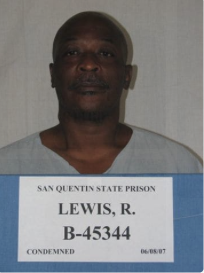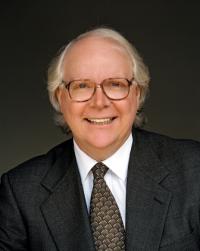While we’re on the subject. . .
Scott Turow notes that “Illinois Gov. Bruce Rauner seems to be one of the few people in Illinois who misses the death penalty” in an
Scott Turow notes that “Illinois Gov. Bruce Rauner seems to be one of the few people in Illinois who misses the death penalty” in an

Robert Lewis, Jr. is off California’s death row after 34 years. Yesterday, the California Supreme Court overturned Lewis’s death sentence, finding “substantial evidence” that he
“In 34 years at The New York Times, I’ve never come across a case in America as outrageous as Kevin Cooper’s.” That’s what NY Times

When Vicente Benavides walked out of San Quentin State Prison late last month, the first prisoner in recent memory to walk off California’s death row,

What is a district attorney? The California primary elections will take place on June 5. There’s a lot at stake, in state and around the
The U.S. Supreme Court recently decided that Walter Leroy Moody wasn’t too old to be executed, but Russell Bucklew may be too sick. Moody was

Late last month, the New Hampshire House and Senate voted to repeal the state’s death penalty and replace it with a sentence of life without
In Massachusetts, some Republicans are calling for reinstatement of the death penalty for the murder of law enforcement officials in the wake of the killing
Living on Death Row examines the “psychology of waiting to die.” Edited by Hans Toch, James R. Acker and Vincent Martin Bonventre, the book presents
The state’s high court announced Thursday that it will hear oral argument in Briggs v. Brown, the lawsuit challenging the constitutionality of Proposition 66, which passed by the slimmest of margins last November. The hearing will be held at 9:30 a.m (PDT), Tuesday, June 6, in the Supreme Court courtroom in Los Angeles. (The oral argument can be livestreamed.) The lawsuit brought by former California Attorney General John Van de

Three events in the last few weeks are indicative of the turmoil still surrounding the death penalty in Florida. When the Florida Supreme Court acquitted Ralph Daniel Wright, Jr. of the murder of his ex-girlfriend and their son last week, he became the 159th person exonerated from death row in the United States since 1973, according to the Death Penalty Information Center. The court’s unanimous decision said the case was

In Alabama on Thursday, the state Senate voted 26-3 to approve a bill already passed by the House that supporters say will trim years off the appeals process in death penalty cases. AL.com reports that the bill, known as the “Fair Justice Act,” “streamlines” the appeals process by requiring death row inmates to exercise their two appeals concurrently instead of consecutively, with appellate teams working simultaneously on behalf of the
In Philadelphia on Tuesday, a civil rights lawyer, who is opposed to the death penalty, has never worked as a prosecutor, and has defended Black Lives matter and Occupy Philadelphia protestors, won the Democratic primary for district attorney. The Associated Press reports that Larry Krasner said his victory was about “a vision of a criminal justice system that works for everyone.” In Georgia on Wednesday, J.W. Ledford, Jr. was executed

Last year, the editors of the Southwestern Law Review asked Stephen Rohde, a constitutional lawyer and DPF board chair, if he was interested in writing an article for an upcoming issue dedicated entirely to capital punishment. “I told them I’d like to write about my personal journey regarding the death penalty, and they were very open to that,” Rohde says. “It’s rare to have a law review article written in
While the state of Arkansas continues with its plans to execute Kenneth Williams by lethal injection tonight, his lawyers are trying to obtain a stay by arguing that they have “new and compelling evidence” that because of his medical problems, to execute him would cause “unconstitutional pain and suffering.” Williams suffers from organic brain damage, lupus, and has the sickle cell trait. His lawyers say the complaint they filed today

This month marks the 25th anniversary of the Los Angeles riots. It also marks the 25th anniversary of the resumption of executions in California after the U.S. Supreme Court “unabolished” the practice. The proximity of the two events was coincidental, at least at first glance. But 25 years later, the forces that led to the street violence following the Rodney King verdicts and to the upswell of public support for
Guardian reporter Jacob Rosenberg was one of the witnesses to the execution of Marcel Williams, who was the second man put to death by the state of Arkansas last night. His report is chilling. He describes Williams lying on a gurney with his head “locked in place,” lying on his side, facing the witnesses. It isn’t easy to read, and you will feel slightly sick inside knowing that this is

Virginia Governor Terry McAuliffe earlier today commuted the death sentence of Ivan Teleguz, who was scheduled to be executed this Tuesday. There was no physical evidence, and questionable witness testimony, of Teleguz’s guilt in the death of his ex-girlfriend in 2001. McAuliffe commuted the 38-year-old Teleguz’s sentence to life without parole. WHSV reported that McAuliffe said at a news conference,”Because the sentencing phase of Mr. Teleguz’s trial was flawed, I